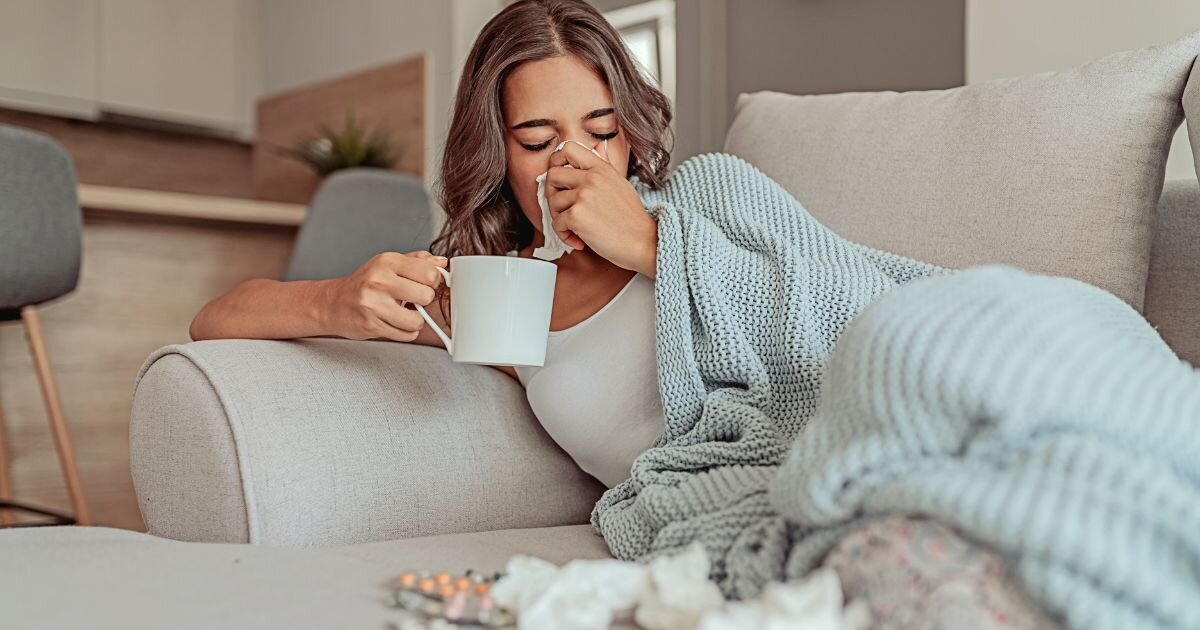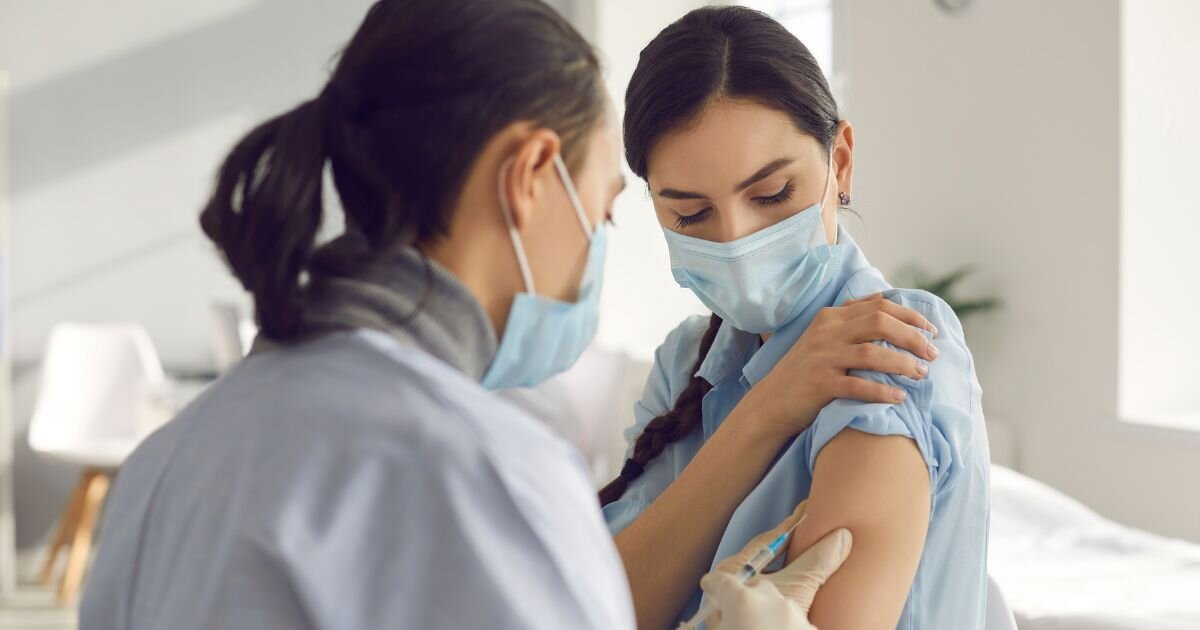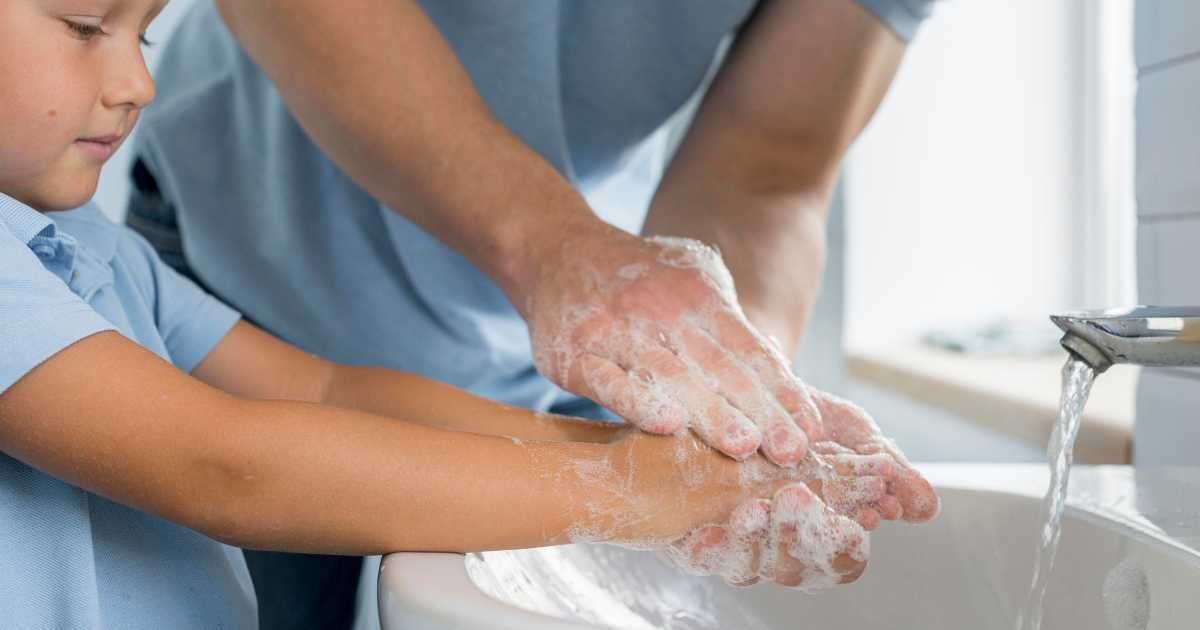Blog
RSV, COVID, Flu: Who Needs the Shot This Fall?

STOP! Are you prepared for the fall season? We don’t just mean having your coats and boots ready for cold weather – we’re talking about the sniffle season! The fever festivities! The cough-and-wheeze pre-winter blues!
Cook’s Pharmacy has compiled everything you need to know about the flu, COVID-19, and RSV vaccinations ahead of the chilly 2024 season. No need for formal introductions, let’s just dive right in:
The Flu Vaccine
Health Canada’s National Advisory Committee on Immunization (NACI) recommends that everyone in Canada who is six months of age and older get a flu vaccine. Protect yourself and your loved ones this flu season by keeping up with your vaccinations.
It’s ideal to get your flu shot by Halloween (October 31, 2024) to help ensure you're protected throughout the fall and winter.
It’s perfectly safe to get the vaccine even if you’re pregnant to help protect your baby in their first six months of life before they’re able to get their own flu vaccine.
This year, both trivalent and quadrivalent vaccines are available. A trivalent vaccine protects against three strains of the flu, while a quadrivalent vaccine protects against four.
Lucky for you, Cook’s Pharmacy has your back. Call us or book an appointment online today.
The COVID-19 Vaccine
As with the flu shot, Health Canada’s NACI recommends that everyone six months of age and older stay up-to-date with their COVID-19 vaccinations. This fall’s doses have been updated to include the most recent COVID-19 strain.
The COVID-19 vaccine can both restore and enhance your protection against the current variants of the virus causing most infections and possible hospitalizations.
This is beneficial not only for you, but the people around you as well. Health Canada adds that vaccination reduces your chances of suffering the effects of “Long COVID”, which can develop during or following infection and last for a long period of time.
You can get your COVID-19 vaccine at the same time as your flu shot or at any other time. Remember, COVID-19 and influenza are two different viruses, so getting one vaccine won't protect you from the other.
Q: I’ve just had COVID-19 in the last few months… when should I update the dose of the vaccine?
A: It’s safe to receive a COVID-19 vaccine after you’ve had COVID-19. Evidence indicates that waiting a period of time after infection with COVID-19 before getting the vaccine can help improve your immune response.
The RSV Vaccination - Infants and Babies
NACI recommends that all infants entering or born during their first RSV season receive an RSV vaccine. Infants who have an ongoing increased risk (immunocompromised) may also be eligible for vaccination during their second RSV season.
NACI also recommends RSV immunization for adults:
75 years of age and older, particularly those at increased risk of severe RSV disease.
60 years of age and older who live in nursing homes or other chronic care facilities.
Adults aged 60 to 74 may also consider RSV vaccination after consulting with their healthcare provider.
Pregnant individuals may also consider getting the vaccine to protect their babies.
It's important to consult with your healthcare provider to discuss the best options for you and your family.
How to Prevent Illness During the Fall Season
To be clear, the best way to reduce your risk of illness is to receive seasonal vaccines each year. However, there are additional preventive actions that can help you prevent illness.
These can be simple things like avoiding people who are actively sick, covering your mouth when you cough, and regularly washing your hands, which helps stop the spread of germs.
This can also include things you may have not considered before - such as taking steps to have cleaner air in your home as well as additional hygiene practices.
Step 1 - Get Vaccinated
Seasonal flu vaccines and keeping up to date with your COVID-19 shots is the most common and effective way to avoid getting sick. There are several options to receive said vaccines, including booking an appointment with your trusted and local pharmacy.

These extra tips can further guide you on how to protect yourself and your loved ones from illness.
Step 2 - Avoid Close Contact with Others
One of the best ways to avoid getting sick is to keep your distance from those who already are. This may not be easy if someone in your household is sick but having them stay in a designated room or wear a mask can help prevent illness.
If you’re the one who is sick, keep your distance from others to help reduce the spread of said illness. By putting physical distance between you and other people, you can help lower the risk of spreading disease.
Step 3 - Stay at Home When You’re Sick
We understand that work and school are important, but so is your health. If you can, stay home from work, school, and personal errands when you're not feeling well.
Realistically, you should only return to normal activities provided you're not running a fever, and your symptoms have subsided for more than a day.
Provided that these two things are true, you should be safe to resume work, school and errands. However, you can still take additional steps to be safe, such as wearing a mask and/or gloves. See the following link for more information on avoiding spreading respiratory illnesses while you’re sick.
Step 4 - Cover Your Mouth and Nose
When you are experiencing early symptoms, such as coughing or sneezing, it’s vital to keep your mouth and nose covered. It can help prevent you from making others around you sick.
Flu-like viruses are believed to be spread primarily through droplets spread via coughs, sneezing, or even speaking. The best way to prevent this is to wear a mask over your mouth and nose and wash your hands regularly.
When an infected person wears a mask properly, they can reduce the spread of illness to others. Masks can also protect the person wearing it from breathing in infectious particles from other sick individuals around them.
Step 5 - Keep Your Hands Clean
Washing your hands often can help protect you from germs and spreading germs. If you don’t have access to soap and water (the quintessential hand-washing combo) you can use an alcohol-based hand sanitizer. However, washing your hands thoroughly is ideal overall.
This not only prevents you from spreading germs, but it’s also a good practice in general.

Step 6 - Don’t Touch Your Eyes, Nose, or Mouth
Germs often spread when someone touches something contaminated with germs and then transfers them by touching their eyes, nose, and mouth.
A study published previously on hand hygiene and the global spread of disease via air travel revealed that if travelers washed their hands at the airport, pandemic transmission could be reduced by up to 69 percent. The same research group previously estimated that only about 20 percent of people at airports have clean hands.
Avoiding touching your eyes, nose, and mouth and keeping your hands clean is essential to avoiding the spread of most diseases, including the flu and COVID-19.
Step 7 - Improve Air Quality
You can improve the air quality of your home by allowing fresh outside air in, by opening your windows and/or doors. Or you can purify indoor air with an air purifier. Cleaner air = reduced risk of exposure to viruses. This is also a good for your overall mental well-being, as fresh air has been proven to improve mood.
Step 8 - Practice Good Hygiene and Healthy Habits
There are a lot of good habits you can practice to help reduce your likelihood of illnesses: cleaning commonly touched surfaces like countertops, doorknobs, and hand railings regularly can help prevent the spread of certain illnesses.
However, it’s also beneficial to maintain your overall health by getting lots of sleep, exercising, managing your stress levels, drinking plenty of hydrating fluids (water is supreme), and eating plenty of healthy, tasty, nutritious food.
Trust Cook’s Pharmacy When It Comes to Your Health
You can count on Cook’s Pharmacy, where we know your name and care about your well-being. When you come to Cook’s Pharmacy, you can trust we know your health history and will always go above and beyond to ensure you’re cared for.
Unlike other pharmacies, Cook Pharmacy is not a chain – we’re your friendly neighbourhood pharmaceutical provider! And we offer the best care above anything else. Our mission isn’t just to offer services, but also to provide education to empower you to live a healthier life.
Book an appointment with Cook’s Pharmacy today.
Contributors
Latest Posts
Show All Recent Posts
Archive
-
2025
-
June
-
May
-
April
-
March
-
February
-
January
-
-
2024
-
December
-
November
-
October
-
September
-
August
-
July
-
June
-
May
-
April
-
March
-
February
-
January
-
-
2023
-
December
-
November
-
October
-
September
-
August
-
May
-
April
-
March
-
February
-
January
-
-
2022
-
December
-
November
-
October
-
September
-
August
-
July
-
June
-
May
-
April
-
February
-
